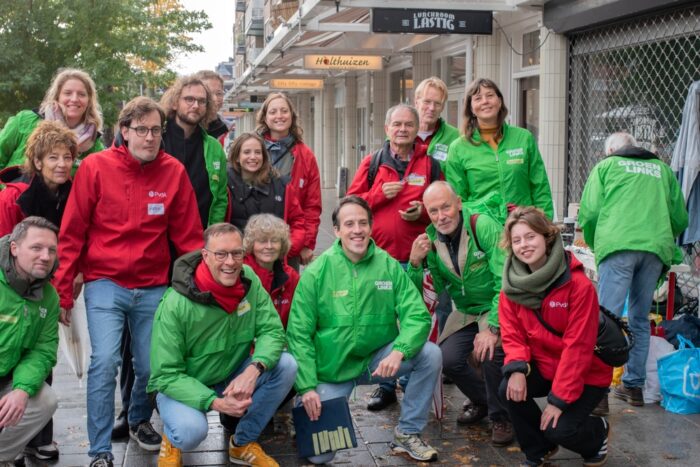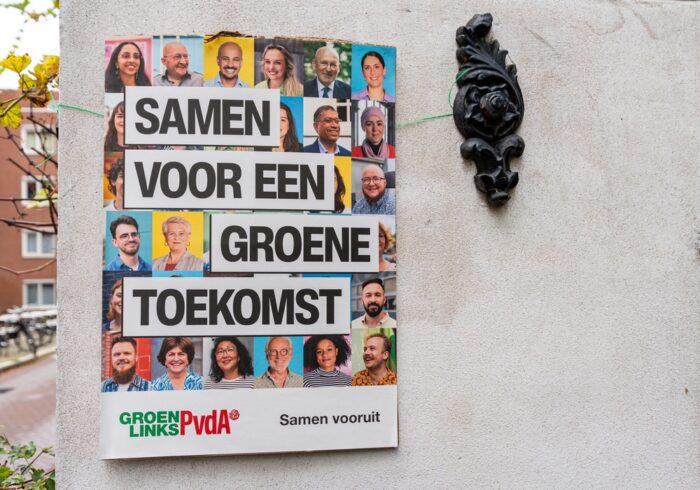The Progressive Post
Romania’s fragmented electorate

The 2024 parliamentary elections in Romania delivered a fragmented political landscape, reflecting deep societal fractures and an electorate disenchanted with its choices. The Social Democrats (PSD) secured the largest share of votes, but only just about. Polarisation reigned supreme, in a campaign marred by populist theatrics, social media manipulation and an unsettling rise of nationalist rhetoric left many questioning the direction of the country. It was not just an election – it was a reckoning.
The results spoke volumes about Romania’s fragmented political landscape. The Social Democrats (PSD) came out on top but with a modest 22.44 per cent in the Senate and 22.09 per cent in the lower chamber. Their historic dominance is slipping, replaced by a fractured coalition of ideologies. The ultranationalist AUR secured a shocking 18 per cent of the vote, pushing their divisive agenda into the mainstream. Meanwhile, the once-mighty conservatives PNL and progressive liberals USR lagged, each barely reaching 12-14 per cent. The emergence of extremist parties like SOSRO and POT, each gaining over 6 per cent, signals a dangerous flirtation with xenophobia and conspiracies. Add to this a contested first round for the presidential race that left voters choosing between a Russophile far-right ideologue and a darling of the urban elite. The centre ground? All but eroded.
This election was TikTok’s coming of age in Romanian politics. Extremist and shadowy users mastered the platform, delivering messages designed to shock, anger and mobilise. Unlike traditional campaigns, these videos relied on emotion rather than facts, creating an echo chamber that transcended geography. Urban professionals and rural pensioners alike fell prey to its seductive simplicity. The transparency of these campaigns–or lack thereof – raises serious questions. Who funded them? Why were fringe narratives amplified? The answers remain elusive, fuelling speculation about external meddling. But one thing is clear: the old playbook of door-knocking and TV debates is dead. The digital age has given rise to a far more insidious form of political warfare.
In urban areas, corruption and the rule of law remain hot-button issues. Parties tried to capitalise on this, presenting themselves as the clean-up crew in a system clogged with cronyism. Yet their polished rhetoric failed to cut through the disillusionment of voters who see little change despite years of reformist promises. Rural Romania, however, heard different dog whistles. National sovereignty, agricultural subsidies and anti-LGBT rhetoric dominated the conversation. AUR’s rise was no accident–it was a calculated response to a deep-seated frustration with urban elites and Brussels bureaucrats. Add to this the growing appeal of SOSRO and POT, whose extremist nationalism flirted with xenophobia, and you see a rural electorate angry and unafraid to show it.
But the rural-urban split was not absolute. Even in the cities, AUR’s fiery rhetoric found supporters, especially among younger voters disillusioned by traditional parties. The irony? The same urbanites who voted for a progressive USR in 2020 are now flirting with nationalist populism in 2024. A symptom of ideological whiplash or just desperation? Probably both. The campaign outside Bucharest was an entirely different beast. In cities, debates focused on policy nuance, albeit drowned in partisanship. But in smaller towns and villages, the main candidates often did not even show up. Instead, social media became the battleground. TikTok, Instagram reels, and shadowy Facebook groups delivered an endless stream of slogans and conspiracy theories, many with a slickness that suggested foreign involvement.
Nationalist factions and agendas dominated this digital space. Their non-transparent campaigns leveraged algorithms to bombard voters with emotionally charged, divisive content. Stories of foreign meddling abound – be it Russian influence or other players with a vested interest in destabilising the region. Yet, despite their digital dominance, these campaigns often lacked substance. Policies were vague, promises lofty. Still, they worked because they exploited existing frustrations: distrust in institutions, economic inequality, and a sense that no party speaks for the ‘real Romania’.
This disconnect was nowhere clearer than in the diaspora. Over 775,000 Romanians abroad cast their votes, overwhelmingly for USR and AUR. For them, PSD and PNL represent everything they left behind: corruption, nepotism, and a country stuck in reverse. But their voices, though loud, remain outnumbered by those at home who either cling to the past or flirt with extremes. Here is the bitter irony of the 2024 elections: more women voted than men, yet their issues were only mentioned on the agenda. Childcare, domestic violence and workplace equality were sidelined by parties too busy pandering to male-dominated rural narratives or urban economic elites, and the social-democrats missed the chance to champion policies that could have galvanised this demographic.
The youth vote was another disappointment. AUR’s rise among younger voters is both perplexing and telling. It is easy to dismiss this as naïve rebellion, but it is more likely a symptom of disillusionment. When every other party feels like part of the problem, nationalism starts to look like the only alternative. USR should have captured these voters, but their inability to connect emotionally left them stranded.
The numbers tell a story of fragmentation. PSD remains the largest party but it is far from dominant. AUR’s surge solidifies its place as the voice of nationalist resentment. PNL’s fall reflects the curse of incumbency and a failure to inspire. USR is stuck in a loop of promising change without delivering it.
This fractured landscape is a gift to extremists and a headache for coalition builders. The likely PSD-PNL coalition will be a marriage of convenience, not conviction. It will limp along, papering over cracks while the country’s deeper issues–economic inequality, demographic decline and institutional decay–remain unaddressed. For Romania’s left this election should be a wake-up call. The urban-rural divide cannot be ignored, nor can the power of social media. Policy will not win elections if it is not communicated effectively. And while technocratic solutions may appeal to urban elites, they mean little to rural voters struggling to make ends meet. The 2024 elections revealed a fractured democracy, but they also highlighted the resilience of its voters. Turnout remained steady, proving that Romanians still care deeply about their country’s future. Women outnumbered men at the polls, a sign of growing female political engagement. And while extremism surged, it did not overwhelm.
Romania’s path forward will not be easy. Bridging the urban-rural divide, combating misinformation, and restoring trust in institutions will require bold action and collective will. But if these elections proved anything, it’s that Romania’s democracy, however flawed, still has fight left in it. In the end, Romania’s 2024 elections were less a verdict on the past four years than a plea for something better. The electorate is tired – of corruption and incompetence, of being ignored. And while extremists exploited this fatigue, their success is a warning, not a destiny. The question now is whether Romania’s leaders will listen. Or whether, in four years, the bitter humour the Romanians rely on to endure will give way to despair.
Photo credits: Shutterstock.com/Adrian Parurariu




